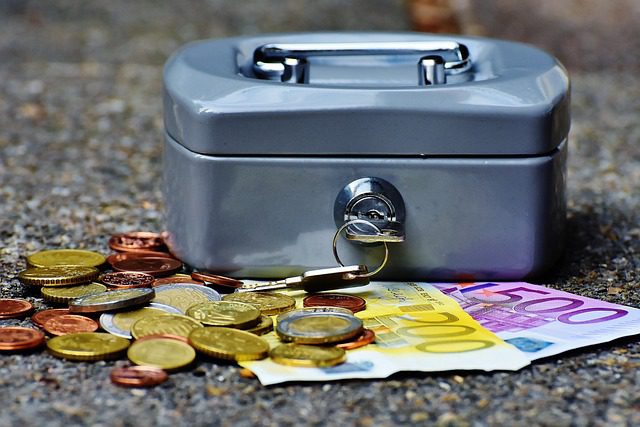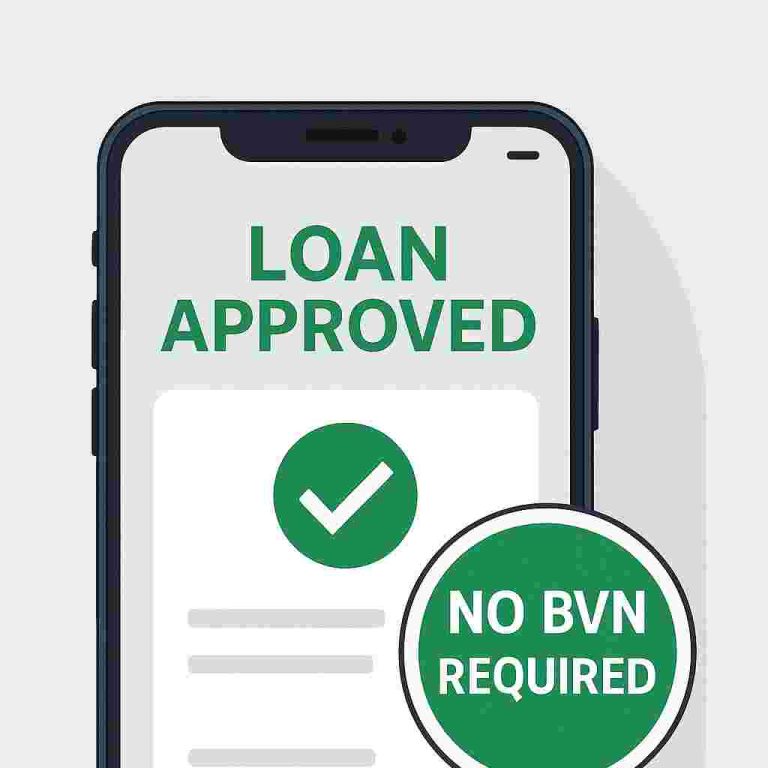Know 15 proven ways to save money fast in Nigeria in 2025. From emergency funds to smart banking, learn practical money-saving tips that work.
Meet Sarah, a 28-year-old marketing executive in Lagos who was living paycheck to paycheck despite earning ₦180,000 monthly.
Like millions of Nigerians, she struggled to save money amid rising inflation and economic uncertainty.
Within six months of implementing the strategies I’m about to share, Sarah managed to save ₦350,000 and build her first emergency fund.
If you’re tired of watching your hard-earned money disappear before month-end, this comprehensive guide will show you exactly how to save money fast in Nigeria, even on a tight budget.
Why Saving Money in Nigeria is More Challenging Than Ever
The financial challenges facing most African economies like Nigeria have intensified in 2025, making it crucial to adopt smart money-saving strategies.
With inflation rates fluctuating and the naira’s volatility, traditional saving methods often fall short.
The harsh reality is that most Nigerians aren’t great at saving money.
However, the good news is that with the right strategies and mindset, you can build substantial savings regardless of your income level.
15 Proven Ways to Save Money Fast in Nigeria
1. Start with the 50/30/20 Rule (Modified for Nigeria)
Traditional budgeting advice doesn’t always work in Nigeria’s economic climate, so here’s a modified approach:
- 50% for needs: Rent, food, transportation, utilities
- 25% for wants: Entertainment, dining out, non-essential items
- 25% for savings and debt repayment: Emergency fund, investments, loan payments
This adjustment accounts for Nigeria’s unique economic pressures while ensuring you prioritize savings.
2. Build Your Emergency Fund First
Before considering any investment, create an emergency fund covering 3-6 months of expenses.
Here’s how to build it fast:
Week 1-4: Save every ₦100 note you receive Month 2: Automate ₦5,000 weekly transfers to a separate savings account Month 3-6: Increase to ₦7,500 weekly
This strategy helped Sarah build ₦120,000 in her first six months.
3. Master the Art of Bulk Buying
Smart bulk buying can save you 20-30% on groceries monthly. Focus on:
- Non-perishables: Rice, beans, pasta, canned goods
- Household items: Detergent, soap, toilet paper
- Frozen foods: Meat, fish, vegetables
Join cooperative buying groups or shop at wholesale markets like Alaba International Market for better prices.
4. Leverage Nigerian Digital Banks for Higher Interest
Popular savings apps in Nigeria like Piggyvest help you save money and invest. These platforms offer:
- Higher interest rates (8-15% annually)
- Automated savings features
- Goal-based saving options
- No minimum balance requirements
Top options include Piggyvest, Cowrywise, Kuda Bank, and Opay.
5. Cut Transportation Costs by 40%
Transportation can consume 15-20% of your income. Here’s how to reduce it:
Public Transport Optimization:
- Buy monthly BRT passes for regular routes
- Use ride-sharing apps during off-peak hours
- Walk short distances under 1km
Fuel Savings for Car Owners:
- Maintain proper tire pressure (saves 10% fuel)
- Remove unnecessary weight from your car
- Plan routes to avoid traffic congestion
- Consider carpooling with colleagues

6. Negotiate Your Bills Like a Pro
Many Nigerians accept bills at face value, but negotiation is possible:
Internet/Cable TV: Call providers annually to request loyalty discounts
Rent: Negotiate payment plans or minor reductions during lease renewal
Insurance: Compare quotes from multiple providers annually
Banking fees: Request fee waivers based on account relationship
7. Generate Extra Income Through Side Hustles
While cutting expenses is important, increasing income accelerates savings:
Online Opportunities:
- Freelance writing or graphic design
- Virtual assistance for international clients
- Online tutoring or course creation
- Affiliate marketing for Nigerian brands
Offline Opportunities:
- Weekend catering services
- Product importation and resale
- Skill-based services (hairdressing, tailoring)
- Small-scale agriculture
8. Use the Envelope System for Cash Management
Despite digital banking growth, cash transactions remain prevalent in Nigeria. The envelope system helps control spending:
- Withdraw monthly cash budget
- Divide into labeled envelopes (food, transport, entertainment)
- When an envelope is empty, spending stops for that category
- Bank any leftover cash at month-end
>>Read related articles on how to save your money and investment apps
9. Plan Your Meals and Batch Cook
Food expenses can consume 40-50% of income if not properly managed:
Weekly Meal Planning:
- Create weekly menus based on local, seasonal ingredients
- Shop with a detailed list to avoid impulse purchases
- Cook in batches and freeze portions
- Grow simple herbs and vegetables at home
Budget-Friendly Nigerian Recipes:
- Beans and plantain combinations
- Vegetable soups with minimal meat
- Rice-based meals with affordable proteins
- Seasonal fruit preservation
10. Avoid These Common Money Traps
Nigerian culture and social pressures can derail savings goals:
Social Obligations: Set a monthly budget for contributions to ceremonies and family events
Impulse Buying: Implement a 24-hour waiting period for non-essential purchases over ₦5,000
Status Spending: Avoid lifestyle inflation when income increases
Unnecessary Subscriptions: Regularly audit and cancel unused services
11. Maximize Your Employer Benefits
Many Nigerian employees don’t fully utilize available benefits:
- Contribute maximum amount to pension schemes
- Use health insurance for routine checkups
- Take advantage of training allowances
- Negotiate for transport allowances or flexible work arrangements
12. Create Multiple Income Streams
Diversifying income sources provides financial security:
Passive Income Ideas:
- Rental income from spare rooms
- Dividend-paying Nigerian stocks
- Fixed deposit investments
- Peer-to-peer lending platforms
Active Income Streams:
- Consulting in your field of expertise
- Teaching or training others
- Small business ownership
- Content creation and monetization
13. Use Technology to Track Spending
Several apps help monitor spending patterns:
- Mint or YNAB: For comprehensive budgeting
- Nigerian bank apps: Most offer spending categorization
- Spreadsheet templates: Free alternatives for basic tracking
- Receipt scanning apps: Digitize and categorize expenses
14. Build Your Financial Education
Financial illiteracy makes people susceptible to scam companies, so continuous learning is crucial:
Free Resources:
- Central Bank of Nigeria financial literacy programs
- YouTube channels focused on Nigerian personal finance
- Local library books on money management
- Online courses from Nigerian financial institutions
Paid Resources:
- Professional financial planning courses
- Investment workshops and seminars
- Personal finance coaching sessions
15. Set Up Automatic Savings
Automation removes the temptation to spend money earmarked for savings:
- Set up automatic transfers on payday
- Use savings apps with auto-debit features
- Create separate accounts for different savings goals
- Increase savings rate by 1% every quarter
Common Mistakes to Avoid When Saving Money
Mistake 1: Waiting for the “Perfect” Time to Start
Start saving today, even if it’s just ₦100. Consistency matters more than amount.
Mistake 2: Keeping All Savings in Regular Savings Accounts
Low-interest accounts lose value to inflation. Diversify between savings accounts, money market funds, and short-term investments.
Mistake 3: Not Having Clear Savings Goals
Vague goals like “save money” fail. Specific goals like “save ₦200,000 for emergency fund by December” work better.
Mistake 4: Neglecting Small Expenses
₦50 daily soft drinks cost ₦18,250 annually. Small expenses add up significantly.
Mistake 5: Emotional Spending
Identify triggers that lead to unnecessary purchases and develop alternative coping strategies.
How to Stay Motivated While Saving
Track Your Progress Visually
Create charts or use apps that show your savings growth. Visual progress reinforces positive behavior.
Celebrate Milestones
Reward yourself (within budget) when you reach savings milestones. This makes the journey enjoyable.
Find an Accountability Partner
Share your savings goals with a trusted friend or family member who can help keep you on track.
Focus on Your “Why”
Regularly remind yourself why you’re saving money. Whether it’s for security, future investments, or specific goals, keep your motivation clear.
Creating Your Personal Savings Plan
Step 1: Calculate Your Baseline
- List all monthly income sources
- Track expenses for one month
- Identify areas for cost reduction
- Set realistic savings targets
Step 2: Choose Your Savings Vehicles
- Emergency fund in high-yield savings account
- Short-term goals in money market funds
- Medium-term goals in mutual funds or stocks
- Long-term goals in pension or retirement accounts
Step 3: Implement Gradually
Don’t try to change everything at once. Implement 2-3 strategies monthly until they become habits.
Step 4: Monitor and Adjust
Review your progress monthly and adjust strategies as needed. Life circumstances change, and your savings plan should adapt accordingly.
Conclusion: Your Journey to Financial Freedom Starts Now
Saving money fast in Nigeria requires discipline, strategy, and consistency. The economic challenges are real, but with the right approach, you can build substantial savings regardless of your current financial situation.
Remember Sarah’s story from the beginning? She started with small steps, implemented these strategies gradually, and built her savings consistently. Today, she has not only achieved her initial emergency fund goal but has also started investing for her future.
Your savings journey begins with a single step. Choose one strategy from this guide and implement it this week. Whether it’s opening a high-yield savings account, starting the envelope system, or beginning a side hustle, take action today.
The Nigeria of tomorrow belongs to those who prepare today. Start saving money fast using these proven strategies, and secure your financial future in 2025 and beyond.
Ready to start your savings journey? Download our free Nigerian Budgeting Spreadsheet and begin implementing these strategies today. Your future self will thank you for the financial security you’re building now.









